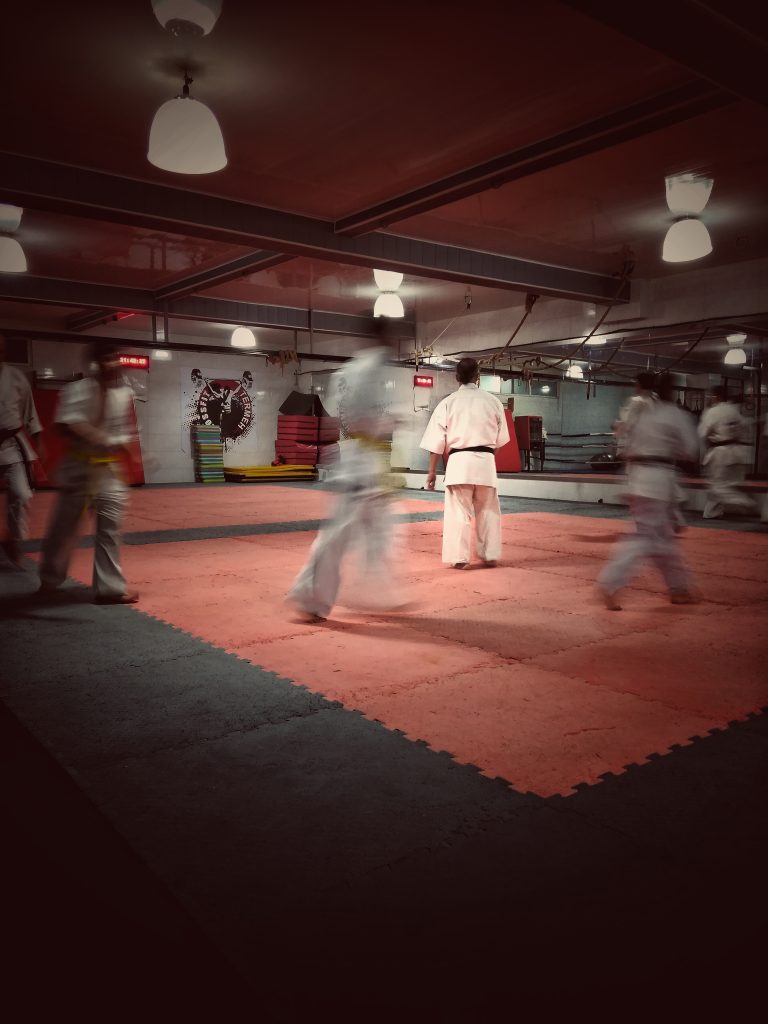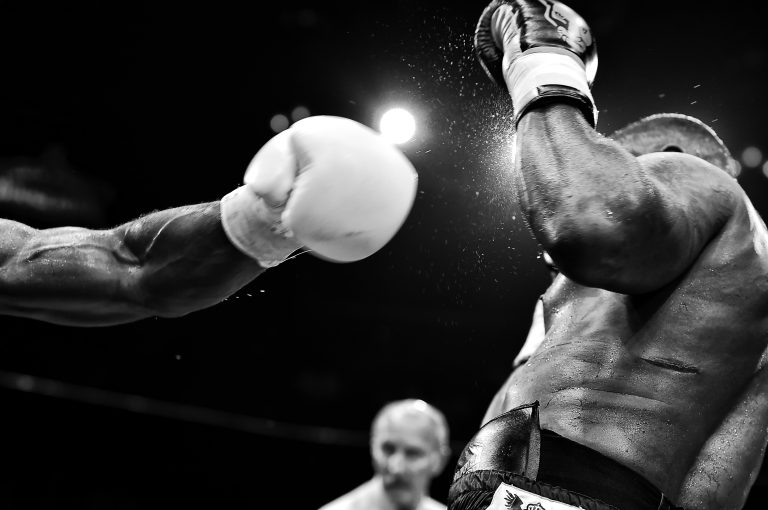What Does Karate Mean in Spanish?
Karate is a popular martial art that originated in Okinawa, Japan. It is often associated with powerful kicks and punches, self-defense and discipline. The word „karate“ itself comes from the Japanese words „kara“ and „te,“ which mean „empty“ and „hand,“ respectively. However, what does karate mean in Spanish? Let’s explore this topic further.
The Translation of Karate in Spanish
Spanish is a widely-spoken language, spoken by over 500 million people across the world. The literal translation of karate in Spanish is „karate,“ which is pronounced the same way as in English. As karate is a Japanese word, it doesn’t have a direct translation in Spanish. However, many Spanish speakers worldwide know and practice karate, and they use the original term to refer to the martial art.
How Popular is Karate in Spanish-speaking Countries?
Karate is a popular martial art worldwide, and Spanish-speaking countries are no exception. In fact, there are many countries where karate has deep roots and has been practiced for decades. Here is a list of some Spanish-speaking countries with a prominent karate culture:
Mexico
Mexico has a vibrant martial arts scene, including karate. Karate was introduced in Mexico in the 1960s, and since then, it has gained a huge following. Today, there are many dojos (karate training schools) in the country, and Mexican karatekas (karate practitioners) have won several international competitions.
Spain
Spain has a long tradition of martial arts, and karate is no exception. The Spanish Karate Federation was founded in the 1970s, and since then, karate has been an important martial art in the country. Spanish karatekas have also achieved international success, winning several medals in the World Karate Championships.
Argentina
Argentina is another Spanish-speaking country where karate enjoys a sizeable following. Karate was first introduced in the country in the 1960s, and since then, it has grown in popularity. Today, there are many dojos across the country, and Argentine karatekas have also achieved international success in various competitions.
Frequently Asked Questions About What „Karate“ Means in Spanish
Karate is a form of martial art that originated in Okinawa, Japan. The word „karate“ is derived from two Japanese words: „kara,“ which means „empty,“ and „te,“ which means „hand.“ Today, karate is practiced all over the world, and many people are curious about what it means in Spanish. In this blog post, we’ll answer some of the most frequently asked questions about what „karate“ means in Spanish.
What is the Spanish word for „karate“?
In Spanish, the word for „karate“ is „karate.“ Unlike some other languages, such as French or German, where the word may be spelled or pronounced differently, the Spanish word for karate is the same as the English word.
Are there any other Spanish words for „karate“?
While „karate“ is the most common term used for the martial art in Spanish-speaking countries, there are some other words that are sometimes used to refer to it. One of these is „karate-do,“ which is used to describe the discipline or way of karate. Another term that is sometimes used is „kárateka,“ which refers to a person who practices karate.
Is karate popular in Spanish-speaking countries?
Yes, karate is quite popular in many Spanish-speaking countries. In fact, some of the most successful karate practitioners in the world have come from countries like Spain, Mexico, and Argentina. Many Spanish-speaking countries also have their own unique styles of karate, such as „kyokushin“ in Argentina or „shito-ryu“ in Mexico.
Do karate terms change in Spanish?
Yes, just like any other language, karate terminology can differ depending on the country or region. While many of the basic techniques and terms are the same across all styles of karate, some terms may be specific to certain countries or regions. For example, in Mexico, the term „mawashi geri“ is sometimes referred to as „kansetsu geri,“ which means „joint kick.“
Can I learn karate in Spanish?
Yes, there are many excellent resources available for learning karate in Spanish. Some karate schools in Spanish-speaking countries offer classes in Spanish, and many instructional books and videos are available online in Spanish as well. Additionally, many karate websites and forums have sections dedicated to Spanish speakers.
What are some famous Spanish-speaking karate practitioners?
There have been many successful karate practitioners from Spanish-speaking countries over the years. Here are just a few:
– Antonio Diaz from Venezuela, who won gold medals in the Pan American Games and the South American Games
– Damian Quintero from Spain, who has won multiple European Championships and a gold medal in the World Games
– Juan Miguel Postigos from Peru, who won a bronze medal in the Pan American Games
– Luca Valdesi from Argentina, who has won multiple World Championships and a gold medal in the World Games
What does „Karate“ mean in Spanish? A Detailed Guide
Karate is a popular martial art that originated in Japan in the early 20th century. The word „karate“ itself has its roots in the Japanese language and can be translated to mean „empty hand“. However, if you’re wondering what the word karate means in Spanish, you may be surprised to find out that there’s no direct translation.
Although Spanish speakers may not have a direct translation for the word karate, the popularity of the sport has led to the adoption of the original Japanese term. In this guide, we’ll explore more about the meaning of „karate“ and how Spanish speakers often use this word in their conversations about martial arts.
Step 1: Understanding the Origin and Meaning of Karate
To truly understand what the term „karate“ means in Spanish, it’s important to first understand its origins and meaning in Japanese. As previously mentioned, the word karate can be translated to mean „empty hand“. In a martial arts context, this refers to the practice of using one’s hands and feet as weapons without the need for any additional tools or weapons.
Beyond its literal translation, karate also has a rich history and philosophy that’s deeply rooted in Japanese culture. One of the key principles of karate is the idea of continuous self-improvement and the development of physical and mental discipline.
Step 2: The Adoption of the Term „Karate“ in Spanish
While there may not be a direct translation of the word karate in Spanish, the popularity of the sport has led to the adoption of the original Japanese term. In many Spanish-speaking countries, karate is practiced and taught using the same terminology as in Japan.
For example, many karate techniques are referred to by their original Japanese names, such as „kata“ (a formal sequence of movements) and „kumite“ (sparring). This helps to create consistency in global karate practice and ensures that practitioners can easily communicate with each other regardless of their language.
Step 3: The Importance of Proper Pronunciation in Karate
When using Japanese terminology to describe karate techniques, it’s important to use proper pronunciation. This not only helps to ensure clear communication between practitioners, but also shows respect for the origins and traditions of the martial art.
For example, the word „karate“ should be pronounced with a sharp „t“ sound at the end, rather than a soft „d“ sound. Similarly, the word „kata“ should be pronounced with the emphasis on the first syllable („KAH-tah“) rather than the second.
Step 4: How Spanish Speakers Incorporate Karate into their Language
While Spanish speakers may not have a direct translation of the word karate, the sport has become a popular part of many communities around the world. As a result, Spanish speakers often incorporate karate terminology into their language when discussing the sport.
For example, an individual practicing karate may be referred to as a „karateka“ regardless of their native language. Similarly, terms like „sensei“ (teacher) and „dojo“ (training hall) are often used in Spanish-speaking countries to describe karate training environments.
Step 5: The Benefits of Learning Karate
Finally, it’s worth noting that learning karate can offer a wide range of physical and mental benefits. Not only does it provide a full-body workout that can help improve strength and flexibility, but it also promotes mental discipline, focus, and self-confidence.
Additionally, the practice of karate can provide an opportunity to connect with a global community of practitioners and learn about the rich history and philosophy of the martial art.
Conclusion
In conclusion, while there may not be a direct translation for the word „karate“ in Spanish, the sport has become an important part of many communities around the world. By understanding the origins and meaning of karate in Japanese, as well as the adoption and incorporation of this terminology in Spanish-speaking countries, practitioners can better connect with one another and develop a greater appreciation for the art of karate.
Inhaltsverzeichnis






